Jocelyn Lai
Objective Prediction of Tomorrow's Affect Using Multi-Modal Physiological Data and Personal Chronicles: A Study of Monitoring College Student Well-being in 2020
Jan 26, 2022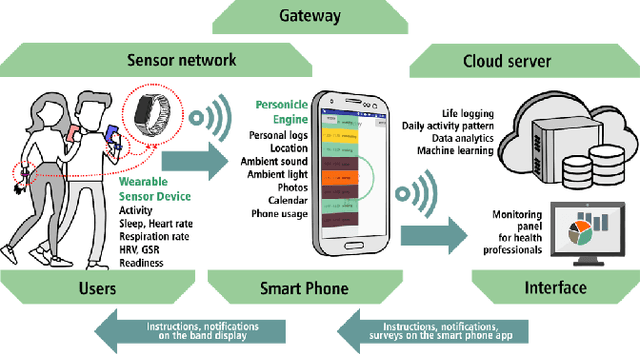
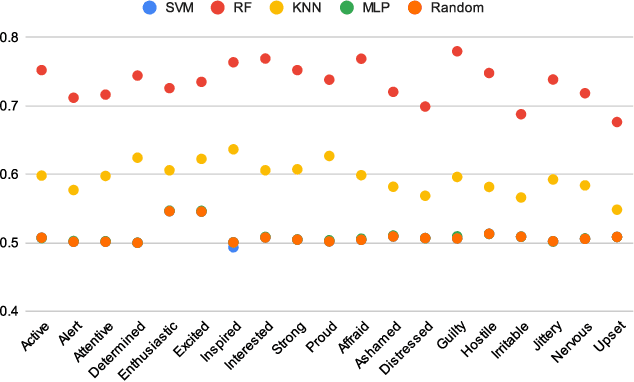
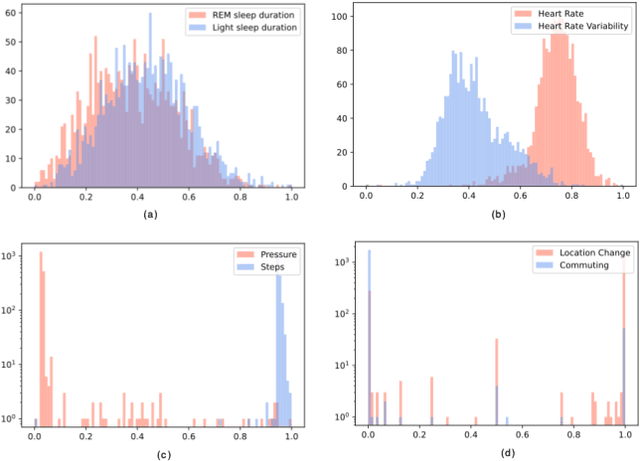
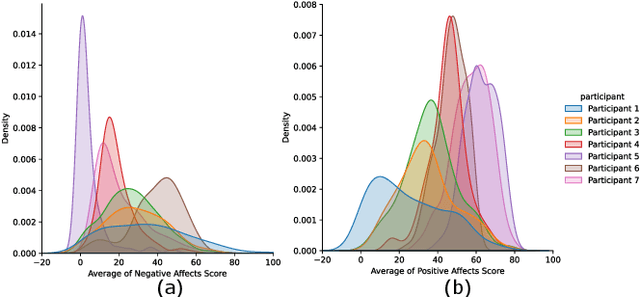
Abstract:Monitoring and understanding affective states are important aspects of healthy functioning and treatment of mood-based disorders. Recent advancements of ubiquitous wearable technologies have increased the reliability of such tools in detecting and accurately estimating mental states (e.g., mood, stress, etc.), offering comprehensive and continuous monitoring of individuals over time. Previous attempts to model an individual's mental state were limited to subjective approaches or the inclusion of only a few modalities (i.e., phone, watch). Thus, the goal of our study was to investigate the capacity to more accurately predict affect through a fully automatic and objective approach using multiple commercial devices. Longitudinal physiological data and daily assessments of emotions were collected from a sample of college students using smart wearables and phones for over a year. Results showed that our model was able to predict next-day affect with accuracy comparable to state of the art methods.
Personal Mental Health Navigator: Harnessing the Power of Data, Personal Models, and Health Cybernetics to Promote Psychological Well-being
Dec 15, 2020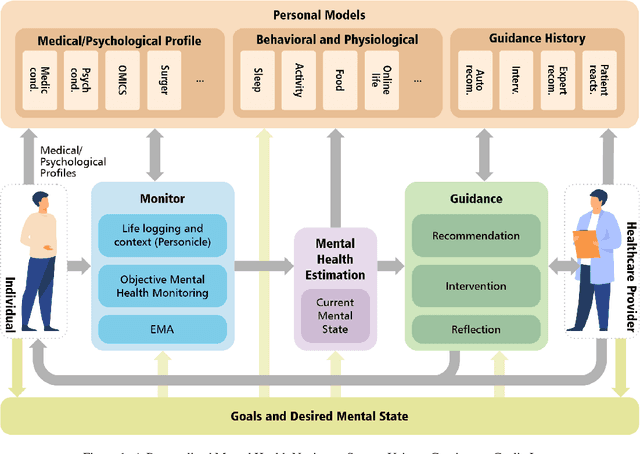
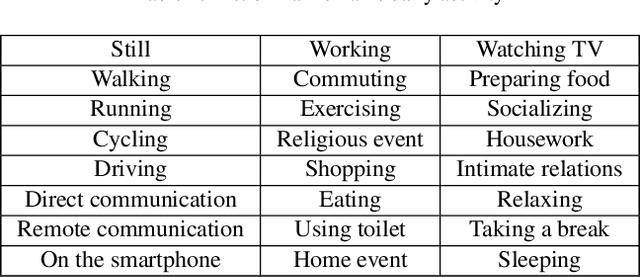
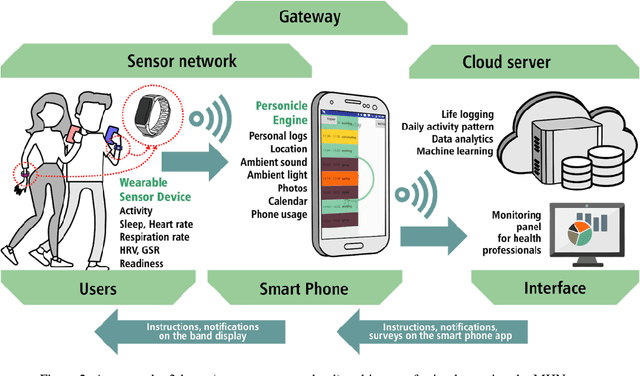
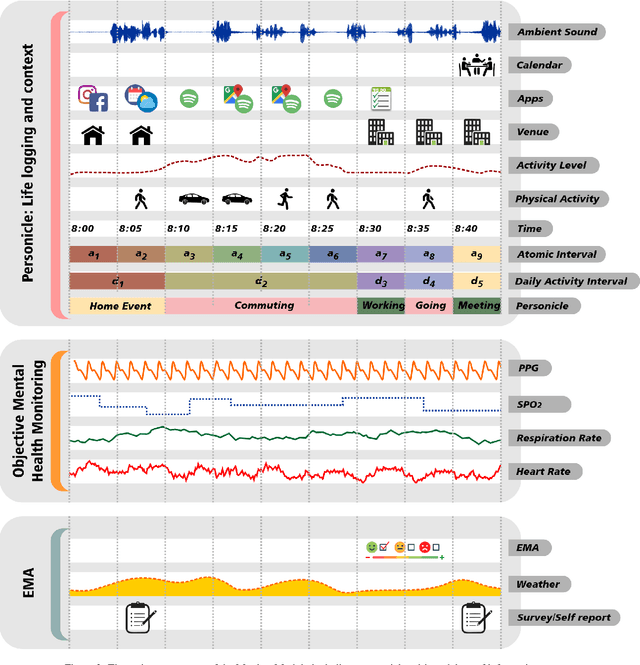
Abstract:Traditionally, the regime of mental healthcare has followed an episodic psychotherapy model wherein patients seek care from a provider through a prescribed treatment plan developed over multiple provider visits. Recent advances in wearable and mobile technology have generated increased interest in digital mental healthcare that enables individuals to address episodic mental health symptoms. However, these efforts are typically reactive and symptom-focused and do not provide comprehensive, wrap-around, customized treatments that capture an individual's holistic mental health model as it unfolds over time. Recognizing that each individual is unique, we present the notion of Personalized Mental Health Navigation (MHN): a therapist-in-the-loop, cybernetic goal-based system that deploys a continuous cyclic loop of measurement, estimation, guidance, to steer the individual's mental health state towards a healthy zone. We outline the major components of MHN that is premised on the development of an individual's personal mental health state, holistically represented by a high-dimensional cover of multiple knowledge layers such as emotion, biological patterns, sociology, behavior, and cognition. We demonstrate the feasibility of the personalized MHN approach via a 12-month pilot case study for holistic stress management in college students and highlight an instance of a therapist-in-the-loop intervention using MHN for monitoring, estimating, and proactively addressing moderately severe depression over a sustained period of time. We believe MHN paves the way to transform mental healthcare from the current passive, episodic, reactive process (where individuals seek help to address symptoms that have already manifested) to a continuous and navigational paradigm that leverages a personalized model of the individual, promising to deliver timely interventions to individuals in a holistic manner.
 Add to Chrome
Add to Chrome Add to Firefox
Add to Firefox Add to Edge
Add to Edge